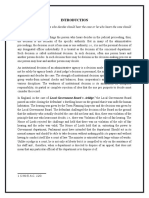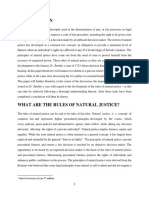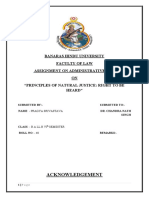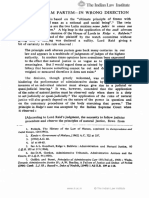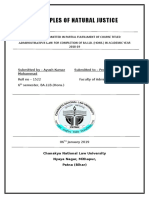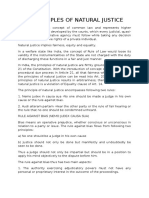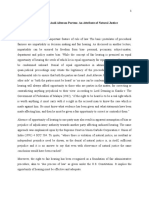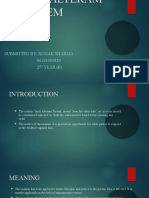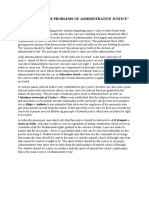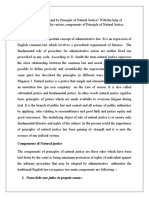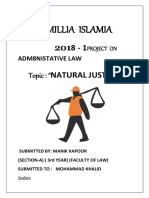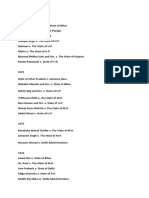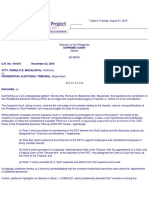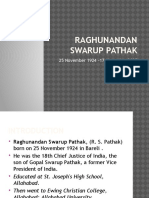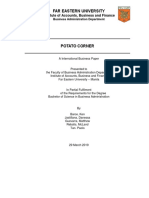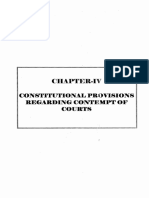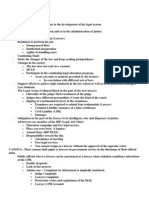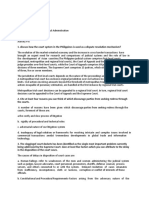0% found this document useful (0 votes)
114 views12 pagesAnshul Admin
The document discusses the rule of fair hearing in administrative law. It provides context on natural justice and explains that the two main principles of natural justice are nemo judex in causa sua (no one should be a judge in their own case) and audi alteram partem (hear the other party). It then discusses the components of fair hearing, noting that the right to notice is essential so that parties are informed of the case against them and have adequate time to prepare a defense. The document also examines the application of fair hearing in case law and how it applies to both quasi-judicial and administrative functions.
Uploaded by
Kabir JaiswalCopyright
© © All Rights Reserved
We take content rights seriously. If you suspect this is your content, claim it here.
Available Formats
Download as DOCX, PDF, TXT or read online on Scribd
0% found this document useful (0 votes)
114 views12 pagesAnshul Admin
The document discusses the rule of fair hearing in administrative law. It provides context on natural justice and explains that the two main principles of natural justice are nemo judex in causa sua (no one should be a judge in their own case) and audi alteram partem (hear the other party). It then discusses the components of fair hearing, noting that the right to notice is essential so that parties are informed of the case against them and have adequate time to prepare a defense. The document also examines the application of fair hearing in case law and how it applies to both quasi-judicial and administrative functions.
Uploaded by
Kabir JaiswalCopyright
© © All Rights Reserved
We take content rights seriously. If you suspect this is your content, claim it here.
Available Formats
Download as DOCX, PDF, TXT or read online on Scribd
/ 12
